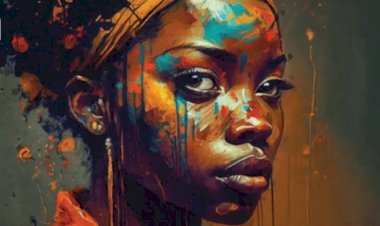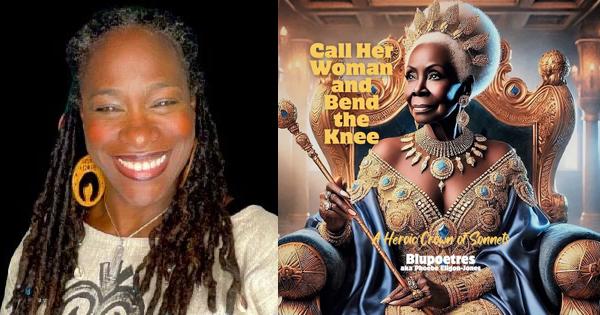Remembering the Black and Asian contribution - Armistice Day 2022
As Armistice Day comes around again, remembers the black and asian contribution to World Wars.
When considering the British Military history black people have always been a part that has contributed before even an army was formed. In the 17th century their involvement increased and continued to increase within the 19th century through the Napoleonic Wars and the Boer War. However, as many have come to realise, British history books are silent on this contribution.
After slavery, people in the Caribbean were enjoying their hard fought freedom when World War I broke out in 1914. At this time The British Empire was one of the world's great powers with a quarter of the world under its control. In order to win the war, Britain had to mobilise as many of these people as it possibly could. So when bodies were needed with the World War, Caribbeans among others, were enlisted.
Some took pride in fighting for the ‘Mother Country,’ and others saw fighting as an ‘opportunity to advance claims for a representative government within the islands.’ (UK History) They thought that Britain would reward them for their loyalty and commitment. Because of this West Indians donated a large sum of money in the war effort and men and women enlisted to fight.
“We were told that we must leave all our belongings and go to the war”, one West Indian veteran wrote, “and if we lived to return we would be give a plot of land for ourselves a cow and money and the government would treat is as good and give us even work in its department so that we can live happily until our services are required again.” However, although many colonial subjects signed up willingly, the British government was less than enthusiastic about recruiting so many black soldiers.’ (The Black Soldiers Who Were Deliberately Forgotten)
Men were recruited from Nigerian, The Gold Coast, Sierra Leone and the Gambia.
‘They helped to defend the borders of their countries which adjoined German territories, and later played an important role in the campaigns to remove the Germans from Africa. Throughout the war 60,000 Black South African and 120,000 other Africans also served in uniformed Labour Units. By the end of the First World War, most of the British Army in Africa was made up of African soldiers. (UK History)
From across the British Empire men and women signed up to do their part but black recruits were not given the same benefits as other recruits.
‘Black units were barred from fighting on the Western Front because, it was feared, allowing colonial soldiers to fight alongside and against white Europenas would undermine British colonial rule.’ (The Black British Soldiers Who Were Deliberately Forgotten)
After 1914, black recruits could be found in all branches of the armed forces and by the end of the war in November 1918 a total of 15,204 black men had served in the British West Indian Regiments.
‘The black soldiers of the BWIR ( British West Indian Regiment) were mostly led by white officers and used as non-combatant soldiers in Egypt, Mesopotamia and parts of Europe. For example, in July 1916 the BWIR’s 3rd and 4th battalions were sent to France and Belgium to work as ammunition carriers.
By the end of the war the BWIR had lost 185 soldiers (killed or died of wounds). A further 1,071 died of illness and 697 were wounded. In Seaford Cemetery there are more than 300 Commonwealth War Graves and nineteen of the headstones display the crest of BWIR.
Britain didn’t just recruit black soldiers, they also looked to their Indian colony.
‘The British deployed the men of their Indian army on the European battlefield from October 1914; the decision being made within days of the outbreak of hostilities. They called upon men from across the empire and from technically neutral China. The French filled their trenches with troops from their own colonies; the famous Senegalese Tirailleurs (infantry) from French West Africa, Spahi cavalrymen from North Africa and units from Vietnam and Madagascar.’
‘In 1915 the German government issued a formal condemnation of the deployment of non-white combatants. It was an appeal to white racial unity, one partially aimed at American public opinion. The German philosopher Max Weber spoke for himself and his nation when he angrily accused Britain and France of unleashing “a refuse of Africans and Asiatic savages”’. (David Olusoga)
The muslims came from Algeria, Morocco and Tunisia. At least 89,000 Muslims were killed fighting for Allied forces under French or British command. (Muslim contribution to World War 1)
‘The roles included front-line soldiers, trench builders and those transporting vital goods and materials. Research also revealed that at least 20 per cent of all British Empire recruits were followers of Islam and that the financial and material contribution from India alone was £479 million - £20 billion in today’s money. The project doubled the estimate of the number of Muslim soldiers recruited to serve in World War One by the Allies from 400,000 to over 885,000 at least.’
‘It is said that 5.5 million Muslims participated on the allied side of the war during WWII. Nearly 1.5 million Muslims were killed in action. By World War II, the British Indian Army had grown significantly to 2.5 million. Of this approximately 1 million were Muslims.
Muslims mainly from India and African countries fought on three continents and played a decisive role in Britain’s first major land victory against Nazi Germany in North Africa.
They also fought valiantly in Somalia, Abyssinia and Madagascar.
The greatest Muslim contribution, as part of the British Indian Army, was fighting the Japanese in the Far East Campaign.
9,000 – 12,000 Palestinians fought for Britain in WW2 in Egypt and Mesopotamia as did 1,500 soldiers from the Arab Legion (Jordan).
The exact number of Muslim casualties are not known, but 87, 000 Indian servicemen died, 34, 354 were wounded and 67,340 became prisoners of war. (Muslim War Memorial)
Armistice Day is a time to remember the contribution that many made so that we may live in relative peace. And whereas the white contribution is well documented, the black and asian is not. Not only do we remember those who sacrificed their lives in World War 1 and 2, we remember all who have lost their lives and continue to lose their lives in wars. And, ever prudent, we remember the current conflicts that are occurring across the globe at this time.
*2022 data from 01 Jan. to 01 Sept.
Category: 1,000 to 10,000 casualties in 2022 (ongoing conflicts):
Country Type of conflict
Afghanistan - civil war and terrorist insurgency
Burkina Faso - terrorist insurgency
Colombia - civil war/drug war
DR Congo - terrorist insurgency
Ethiopia - civil war
Iraq - terrorist insurgency and political unrest
Mali - civil war and terrorist insurgency
Mexico - drug war
Nigeria - terrorist insurgency
Somalia - civil war
South Sudan - ethnic violence
Sudan - terrorist insurgency
Syria - civil war
Ukraine - Russian invasion
Yemen - civil war























